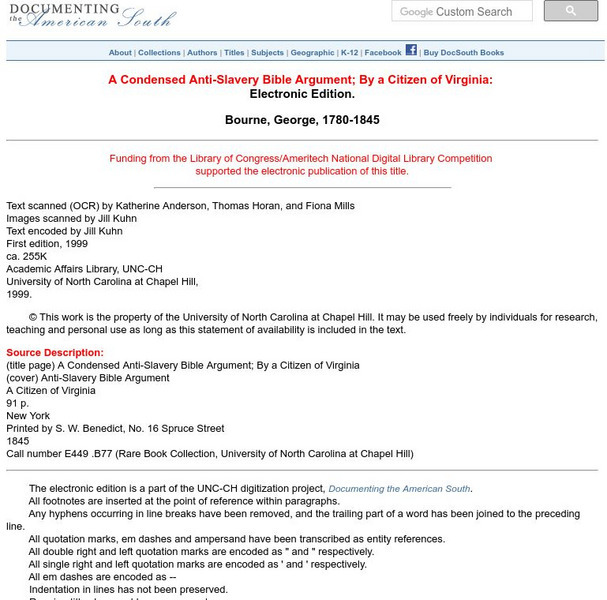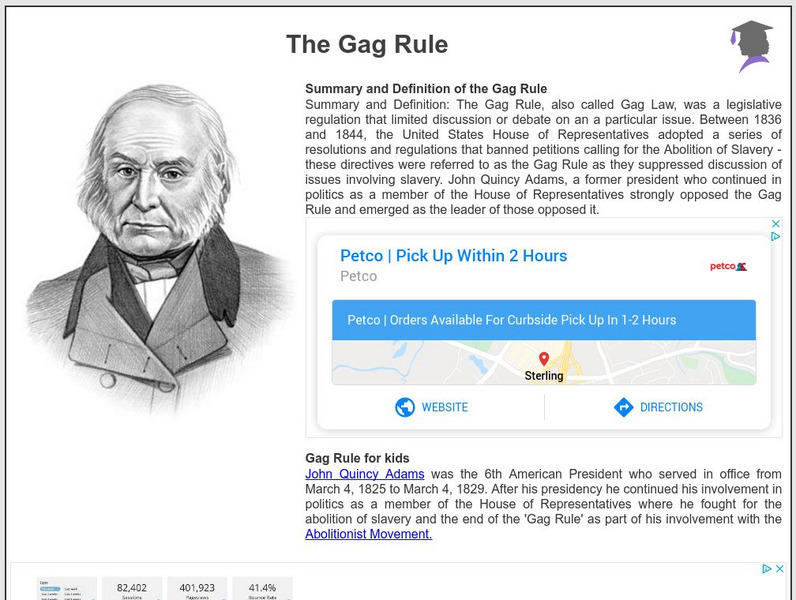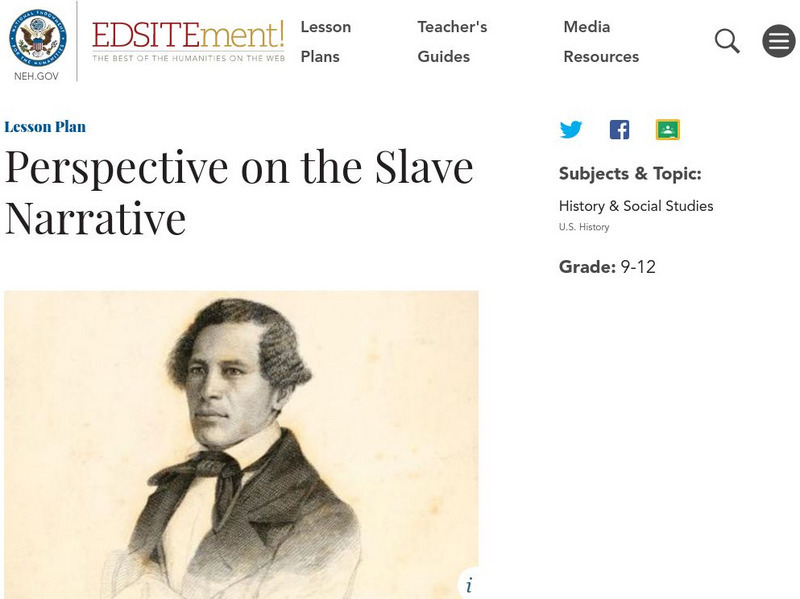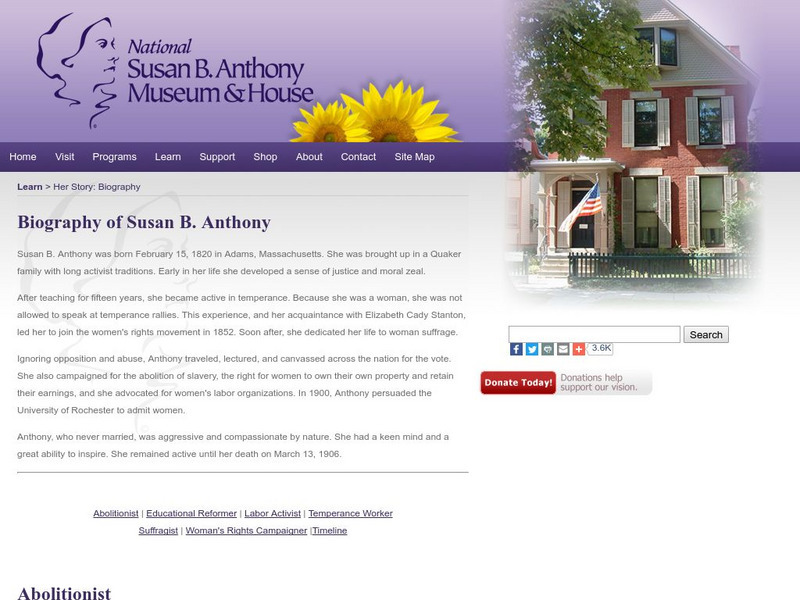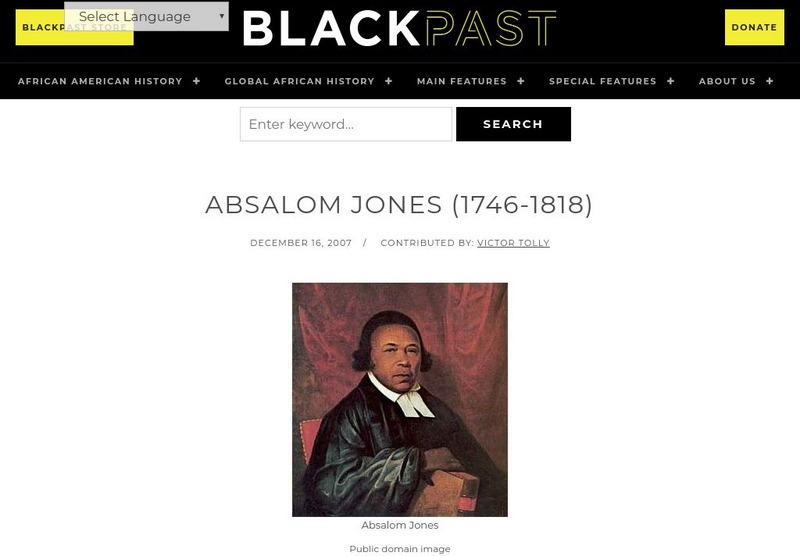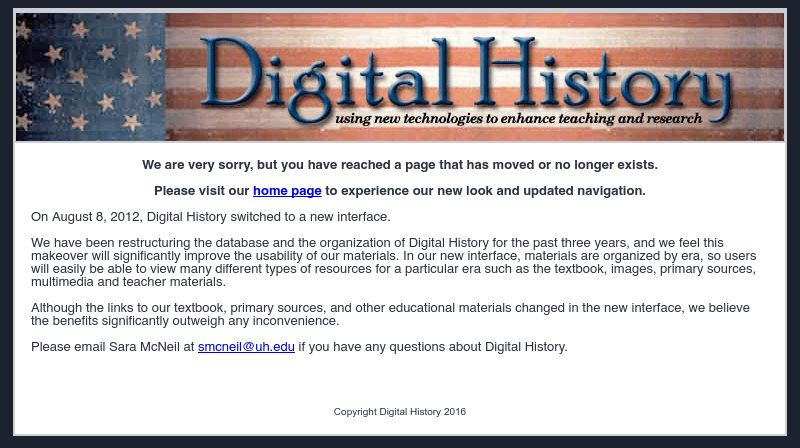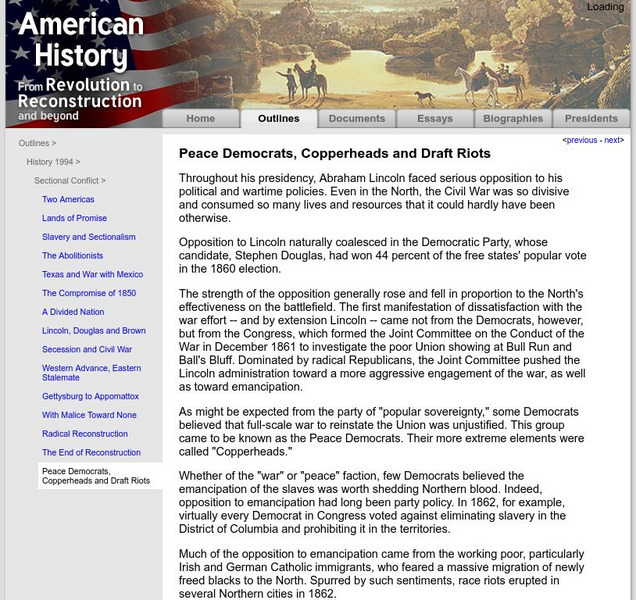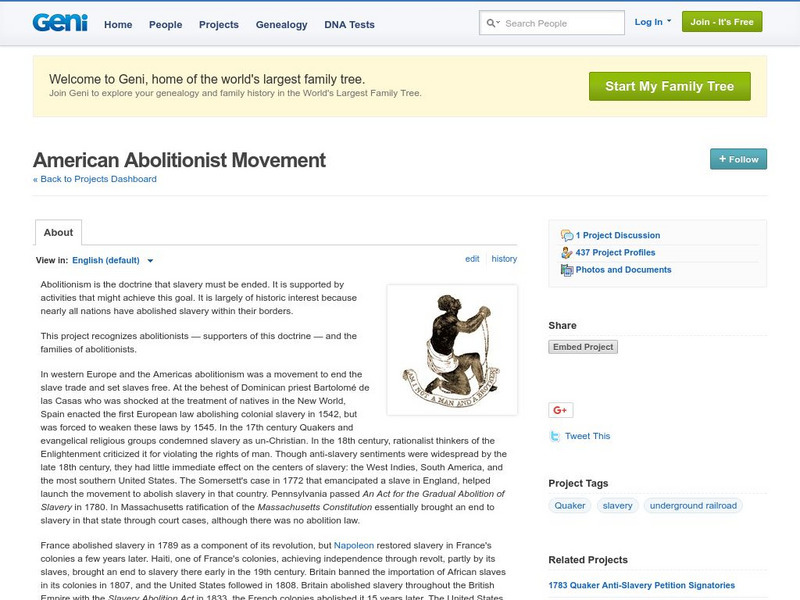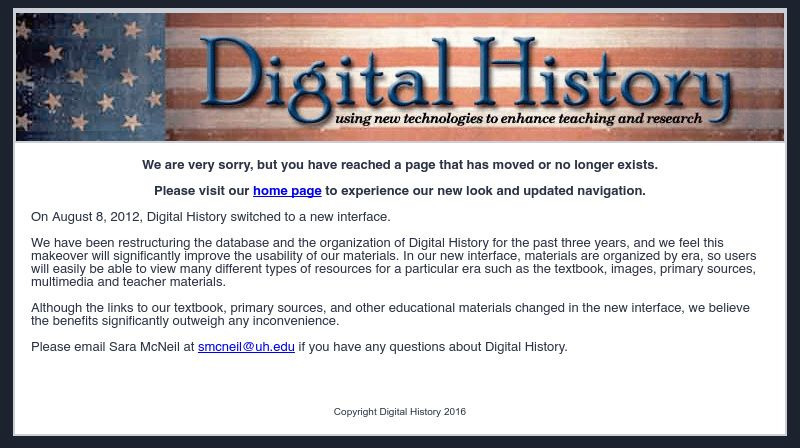Hi, what do you want to do?
US National Archives
Our Documents: A National Initiative on American History, Civics, and Service
Our Documents is home to one hundred milestone documents that influenced that course of American history and American democracy. Includes full-page scans of each document, transcriptions, background information on their significance, and...
Other
Online Archive of 19th Century u.s. Women's Writings: Emancipated Slaveholders
Writing in the 1840s, Lydia M. Child tells the story of ex-slavers living in Virginia. Demonstrates the complexity of the abolition debate in Pre-Civil War America.
University of North Carolina
The Church in the Southern Black Community: George Bourne, 1780 1845
This site from the University of North Carolina contains the text of George Bourne's 19th-century argument against slavery using the Bible as an instrument to prove that slavery is morally wrong.
Siteseen
Siteseen: American Historama: The Gag Rule
Details concerning the Gag Rule that limited discussion or debate on a particular issue and banned petitions calling for the abolition of slavery.
Library of Congress
Loc: Abolition
This site, which is provided for by the Library of Congress, is part of the African American Mosaic. It describes abolition and gives references to books about the topic.
Library of Congress
Loc: From Slavery to Civil Rights
This interactive timeline lets students select an era in the history of blacks in United States. Text tells the highlights of the time and primary source materials are linked that pertain as well.
Texas State Library and Archives Commission
Texas State Library and Archives Commission: Beginnings of the Movement: The Second Great Awakening
What did the Second Great Awakening have to do with women's rights and social reform? How was it a stepping stone for the women's suffrage movement? Find out how this movement, which emphasized individual worth, empowered women...
US Government Publishing Office
Ben's Guide to u.s. Government: About the Emancipation Proclamation
Ben's Guide is a fun way to present U.S. Government to students grades K-12. This site presents a history of the Emancipation Proclamation. Links to related sites are available.
The History Cat
The History Cat: Reconstruction Era
Describes what the South was like after the Civil War ended. Many places were in ruins and people were desperately poor with many being homeless. Social structures had collapsed now that slaves had been freed. The Reconstruction era...
University of California
History Project: The Trial and Execution of John Brown
Using primary source documents, high school lesson plan focuses on John Brown, the events at Harper's Ferry, and his trial and execution. Included are excerpts from 16 primary source documents to aid in the research of writing this paper.
National Endowment for the Humanities
Neh: Edsit Ement: Perspective on the Slave Narrative
A lesson plan focusing on the the historical context of slave narratives, "Perspective on the Slave Narrative" introduces students to the abolitionist movement and the slave experience.
Other
William Lloyd Garrison: Abolitionist and Leader
A several page article about William Lloyd Garrison and his actions in the abolition of slavery.
Independence Hall Association
U.s. History: Religious Revival
The Second Great Awakening was transformative in ways beyond religion. Read about the new ideas about religion and see how they emphasized individual dignity and worth. This then reflected on the early ideas of women's suffrage, and the...
Other
University of Michigan: Susan B. Anthony House: Susan B. Anthony
This resource divides her life into the following parts: abolitionist, educational reformer, labor activist, temperance worker, suffragist, and women's rights campaigner.
Curated OER
National Park Service: The Life of Frederick Douglass
Brief biography of Frederick Douglass with links to pictures and short biographies of his wife and children.
BBC
Bbc: Bitesize History: Industrial Era: Triangular Slave Trade: Interpretations
Discusses the different interpretations that historians have had of the slave trade. It includes a video of Interpretations of the abolition of slavery, questions with answers, and a link to an assessment.
British Library
British Library: Discovering Literature: African Writers and Black Thought in 18th Century Britain
This article describes how four writers, taken from Africa as children and sold into slavery, grew up to write works that challenged British ideas about race, called for African brotherhood, and demanded the abolition of the slave trade.
Black Past
Black Past: Absalom Jones (1746 1818)
In this encyclopedia article you can read about Absalom Jones and his role in the development of black churches in the United States.
Black Past
Black Past: Toussaint L'overture
This encyclopedia article gives an accounting of Toussaint L'Overture, freed Haitian slave who was the leader of the revolt against France.
Digital History
Digital History: Pre Civil War Reform: Introduction
A good introduction to the topic of reform movements in Pre-Civil War America. What were the reasons that encouraged reform of many social ills?
University of Groningen
American History: Outlines: Peace Democrats, Copperheads, and Draft Riots
Abraham Lincoln did not have universal backing in the conduct of the Civil War. Read about the opposition, mainly from the Democrats, who opposed emancipation of the slaves and waging a war to reunited the country.
Independence Hall Association
U.s. History: Reconstruction
A very good overview of Reconstruction in the South after the Civil War. Find the questions that needed to be answered about how to reincorporate the Confederate states, what rights freed blacks would have, and how terms of...
Other
Geni: American Abolitionist Movement
Looks at the history of the abolitionist movement in the United States, the key people involved, and important events.
Digital History
Digital History: Pre Civil War South
A comprehensive look at the economy of the South and the changes brought by the cotton gin. Read through five pages that discuss the economy, the tradition of the plantation, and the sectionalism that arises in this time period.







